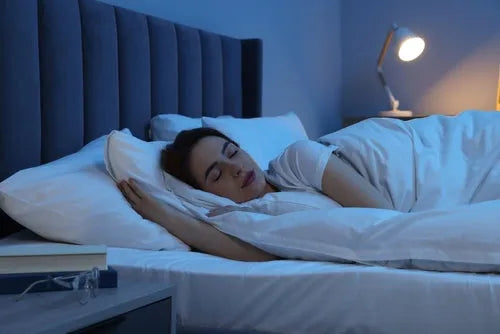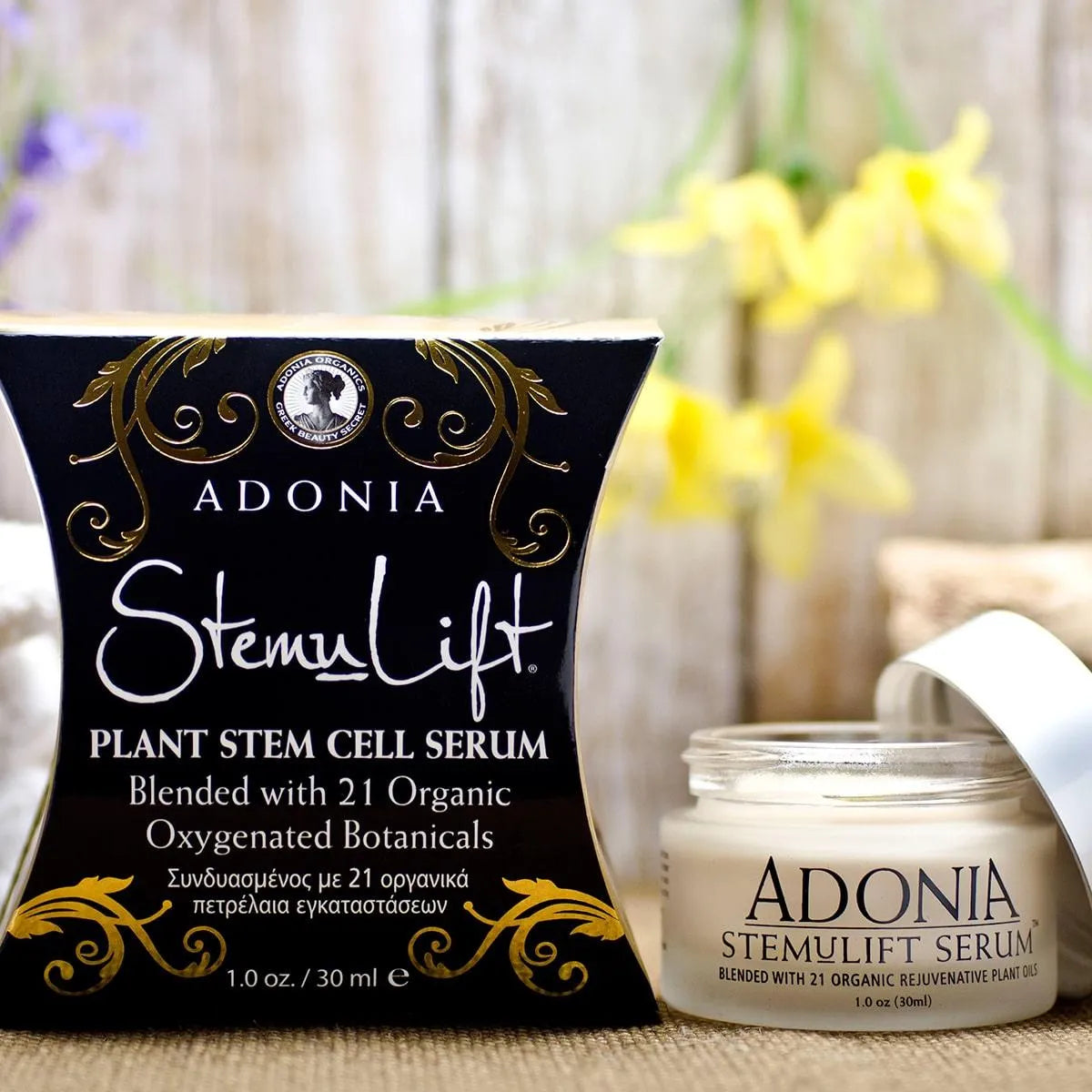
Early Riser vs Night Owl
Have you ever wondered why some people bounce out of bed at dawn, ready to take on the world, while others find their groove long after the sun sets? It all comes down to something called circadian rhythms, our body's internal clock that dictates when we feel alert and when we need rest. But beyond just influencing our sleep schedules, these natural rhythms have a profound impact on our energy levels, productivity, and even our appearance. Disrupting them can lead to visible signs of aging, dull skin, and under-eye bags that no amount of concealer can fully hide.
What Are Circadian Rhythms?

Circadian rhythms are 24-hour cycles that regulate various biological processes, including sleep, metabolism, hormone production, and even skin regeneration. Controlled by the suprachiasmatic nucleus (SCN) in the brain, these rhythms respond primarily to light and darkness.
When the sun rises, your body gets signals to produce cortisol, which helps wake you up and keep you alert. As the sun sets, your brain starts producing melatonin, a hormone that promotes sleep. These processes work like clockwork—unless, of course, external factors like artificial light, shift work, or late-night Netflix marathons throw them off balance.
Early Risers vs. Night Owls: The Science Behind Chronotypes

Your chronotype—the term for whether you're naturally an early bird, a night owl, or somewhere in between—is largely dictated by genetics. Researchers have identified specific genes, such as PER3, that influence whether a person prefers waking up early or staying up late.
- Early Birds: People who wake up naturally at sunrise and feel most productive in the morning fall into this category. They tend to have a shorter PER3 gene, meaning their sleep drive builds up faster, making them sleepy earlier in the evening.
- Night Owls: These individuals thrive in the late hours and struggle with early mornings. Their PER3 gene is often longer, which means their sleep-wake cycle is shifted later. Night owls tend to peak in alertness and creativity in the evening.
- Intermediate Types: Most people fall somewhere in between, leaning slightly toward one end of the spectrum.
The Effects of Disrupting Your Natural Sleep Pattern

Whether you’re an early riser forced to work late or a night owl struggling with a 9-to-5 schedule, forcing yourself to operate against your natural chronotype can take a toll on your body and appearance.
1. Increased Signs of Aging
Ever noticed how your skin looks dull and tired after a few nights of poor sleep? That’s because nighttime is when your skin undergoes its most intensive repair. Collagen production, cell regeneration, and hydration balance all occur during deep sleep. When you consistently interrupt this cycle, you accelerate the aging process, leading to fine lines, wrinkles, and loss of elasticity.
2. Dark Circles and Puffy Eyes

Night owls who don’t get enough quality sleep often battle under-eye bags and dark circles. This is because sleep deprivation increases cortisol levels, leading to water retention and inflammation, which manifests as puffiness. Additionally, lack of sleep causes poor circulation, making blood vessels under the eyes more visible.
3. Skin Breakouts and Inflammation
Circadian rhythms regulate the production of stress hormones like cortisol. Chronic sleep disruption keeps cortisol levels high, which can trigger breakouts, redness, and even worsen conditions like eczema and psoriasis.
4. Dehydrated, Dull-Looking Skin

When we sleep, our skin undergoes a process called trans-epidermal water loss, where it naturally loses moisture. This is why night creams and serums are so effective before bed. But if you’re skimping on sleep, your skin doesn’t get a chance to rebalance its hydration levels, leaving it looking parched and lackluster.
5. Weight Gain and a Bloated Appearance
Sleep influences metabolism and digestion. When circadian rhythms are thrown off, your hunger hormones (ghrelin and leptin) become imbalanced, leading to increased cravings for high-calorie, sugary foods. Over time, this can result in weight gain, bloating, and even changes in body fat distribution.
How to Align Your Lifestyle With Your Circadian Rhythm

If your schedule doesn’t match your natural chronotype, all is not lost. You can make small adjustments to improve your sleep quality and minimize the impact on your health and appearance.
1. Optimize Your Exposure to Light
- Early risers should avoid bright screens at night and use dim lighting in the evening to encourage melatonin production.
- Night owls should get morning sunlight exposure to help reset their internal clock and feel more alert earlier in the day.
2. Stick to a Consistent Sleep Schedule
Even if you can’t fully align with your chronotype, aim to go to bed and wake up at the same time every day (yes, even on weekends!). This helps regulate your circadian rhythm and promotes better sleep quality.
3. Avoid Caffeine and Heavy Meals Late at Night
Caffeine can stay in your system for 6–8 hours, making it harder for night owls to fall asleep at a reasonable time. Heavy meals before bed can also disrupt digestion, leading to poor-quality sleep.
4. Use Nighttime Skincare Wisely

Since your skin does most of its repair work at night, incorporate ingredients like hyaluronic acid (for hydration), retinol (for cell turnover), and peptides (for collagen production) into your evening routine to maximize the benefits of sleep. Adonia Organics StemuLift serum reduces the appearance of deep wrinkles, fine lines, & sagging skin. Helps fade the look of skin discolorations & dark circles. Reduces the appearance of 'Turkey neck' & 'neck wrinkles.' Simplifies your beauty routine by replacing your current day & night cream.
5. Practice Relaxation Techniques
For those struggling with sleep, incorporating a wind-down routine can help. This could include light stretching, meditation, reading a book (not a screen!), or taking a warm bath to signal to your body that it’s time to rest.
Final Thoughts
Your circadian rhythm is more than just a sleep schedule—it’s a biological blueprint for how your body functions best. Whether you’re an early riser or a night owl, understanding and respecting your internal clock can lead to better energy levels, productivity, and even healthier, more radiant skin. And if you’ve been burning the midnight oil too often, consider this your sign to prioritize sleep—not just for your well-being but for your beauty routine, too!